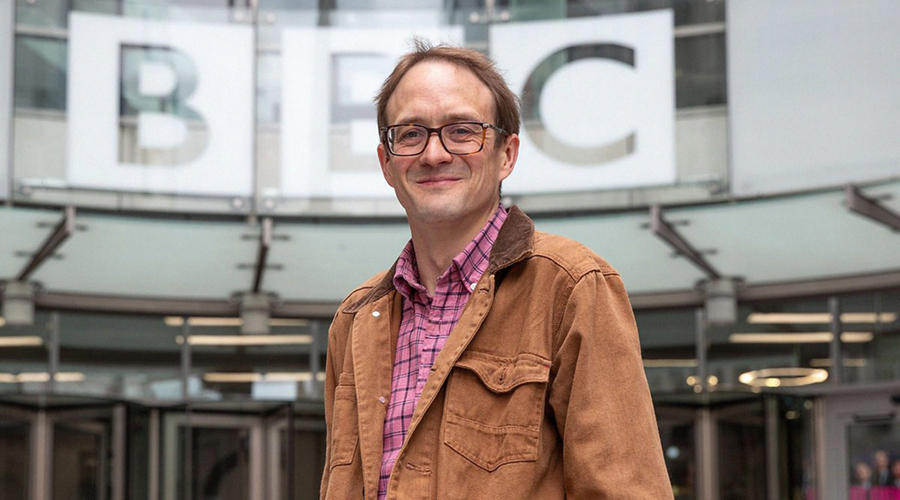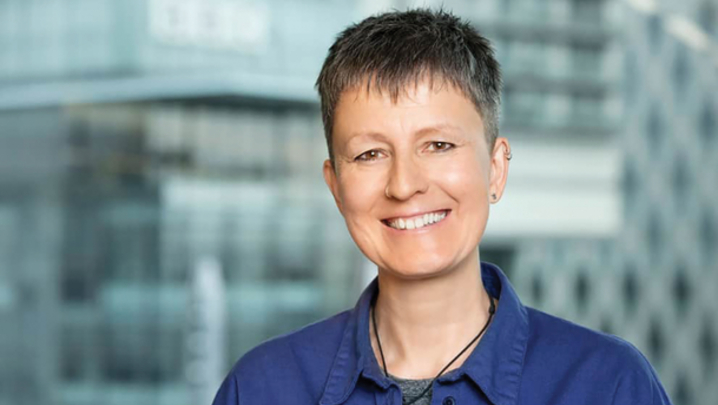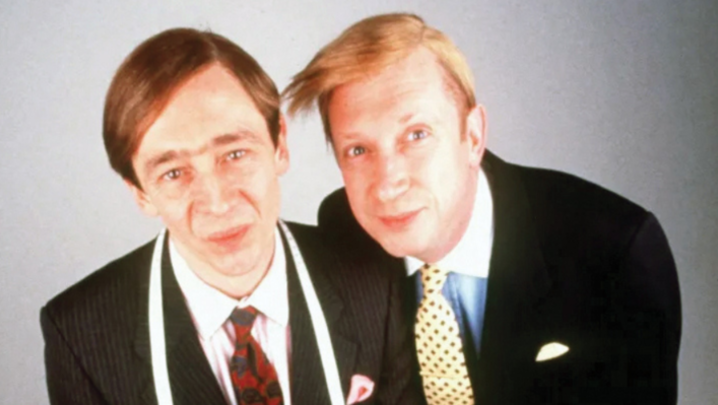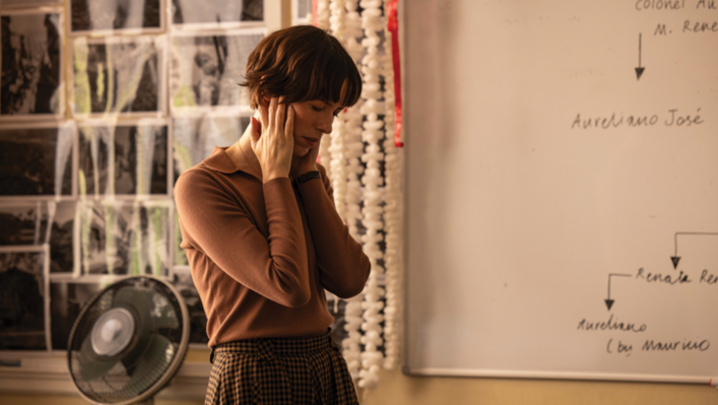Caroline Frost finds out how Chris Mason is likely to approach one of the toughest jobs in news journalism.
In 2018, Chris Mason stood outside the Houses of Parliament to give his opinion on the never-ending Brexit negotiations. He told the BBC Breakfast audience: “To be quite honest, looking at things right now, I haven’t got the foggiest idea what is going to happen in the coming weeks. Is the Prime Minister going to get a deal with the EU? Dunno. Is she going to be able to get it through the Commons? Don’t know about that either.
“I think you might as well get Mr Blobby back on to offer his analysis, because, frankly, I suspect his is now as good as mine.”
For veteran political journalist and broadcaster Iain Dale, that moment represented the best of Mason; it was “a refreshing change to hear someone admitting they don’t have the answer. It’s that honesty people will admire and relate to in his new job.”
That new job is, of course, arguably the country’s biggest in news journalism. Twenty years after this self-professed “political geek” gained his first BBC job in Newcastle, and with more than a decade at Westminster, including stints for BBC Radio 5 Live and Radio 4’s Westminster Hour, plus reporting from Brussels and recently hosting Any Questions?, Mason this month steps into Laura Kuenssberg’s shoes as the BBC’s political editor.
His appointment follows a quagmire of a recruitment process, which saw two external, female candidates shortlisted before the job was readvertised and finally given to the popular BBC staffer. One BBC senior political journalist believes Mason missed out initially due to his radio and podcasting skills. “That means there are some people at Westminster far more interested in TV, for whom he would never have been first, second or third choice,” he says. “He goes into this job knowing that he has to work on some key relationships internally.”
Former director of BBC News Richard Sambrook, takes a more positive view: “We know what we read about him being invited back into the process, but that indicates how careful they were about getting the right person for the job.”
Sky News’s political editor, Beth Rigby, points out that Mason’s appointment provides continuity at a time of change for the BBC: “There is a lot of change going on, people leaving, a new boss [Deborah Turness] coming in. Chris has been there for two decades, he knows how the BBC works, he’s a brand and a name. That is quite reassuring for an organisation that’s gone through a lot of change.”
She adds: “He’s a great journalist, a brilliant communicator. In that role, your first and foremost job is to distil for the nation what’s going on in Westminster and why it matters…. These sorts of jobs, and I include mine, have changed in the past decade – from someone almost detached from the viewer, operating in an ivory tower in this rarefied world – to being much more about how politics relates to people.
“Chris is very good at that. He’s down to earth, he’s relatable, he prides himself on being a very real Yorkshireman, and that’s what the BBC needs.”
Simon Bucks, Chair of the RTS Television Journalism Awards, formerly of ITN and Sky and now CEO at BFBS, agrees: “He is incredibly user-friendly, a perceptive and fluent analyst. Will he bring in stories? Don’t know. His predecessors have all had a stable of contacts to inform their reporting and analysis. It depends what Tim Davie and Deborah Turness want from the role in the new era.”
According to a BBC colleague, this audience-facing warmth is the genuine article. “He’s collaborative, not competitive, extremely down to earth, and hardworking. His strength is good political judgement and a warm and original style, a way of looking at stories and connecting them to the public. And he has a great turn of phrase that brings these stories to life.”
Dale remembers meeting Mason on the latter’s first day at Millbank, more than a decade ago. “He was very self-deprecating and friendly, and I’m pleased to say he hasn’t changed remotely.”
Much of Mason’s unique style lies in his accent, unmistakably that of a man brought up in Grassington in the Yorkshire Dales. Although he told Dale, in a podcast in 2020, that his early bosses had warned him his voice would prohibit a career in broadcasting, Mason now joins those who believe it is a cracking asset, for him and for the BBC in its aim to reach audiences beyond the southern bubble. He told Dale: “Radio stations needs a sound like the audience we’re broadcasting to. You need that range. I’m a middle-aged, middle-class white bloke who went to Oxbridge. But I just happen to have a Yorkshire accent. Whenever I go back, I get ribbed the whole time: ‘You sound like a posh southerner.’”
A BBC colleague agrees that it will serve employer and employee: “It fits in with the Director-General’s vision to have much of the BBC based out of London. It won’t be why he got the role but, if he does the job well, he can capitalise on the fact he’s from Yorkshire to present an everyman who’s on the side of viewers and listeners.”
Mason told Dale that he has never had a long-term plan for his career. Instead, he likes to grab opportunities when they arise. Of late, this proactive attitude has served him well. Not least, in 2019, when he succeeded the long-serving Jonathan Dimbleby as the chair of Radio 4’s Any Questions?. And in 2017, with the surprise triumph of the podcast Brexitcast, the brainchild of Mason and his colleague Adam Fleming. It started out small and is now the unmissable Newscast. “For a while BBC management weren’t interested because it hadn’t been dreamed up by suits,” says a colleague.
“But what they did was a clever way of presenting an accessible but deep dive into the political minefield… that didn’t talk down to the listener. They showed management how you could do good podcasting.”
Observers agree that the challenges that lie ahead for Mason are plentiful: political, with an ever-more polarised landscape; physical, with 15-hour days the norm, and an increased scrutiny, no small thanks to social media, that Rigby says knocked her off guard initially.
Mason describes himself as “never particularly political, and the longer I’ve done the job, the more detached I’ve become from even thinking about it”. This will be tested in a job that involves being almost umbilically attached to Number 10. “It’s very tribal, and the trickiest part is to avoid sounding like a mouthpiece for the Government. He’ll have to pull in stories from all around Westminster – with more focus on what Labour are doing, because they could be in power in two years’ time,” says a BBC News insider.
Sambrook agrees that keeping to an independent, middle ground has become increasingly hard for political journalists. “It’s very difficult to survey neutral, central positions because no one accepts the legitimacy of that,” he says.
Rigby doesn’t think this is as hard as people maintain: “As long as you know you’re being impartial and balanced, that’s the bread and butter. If you’re getting it from both sides, you’re probably doing something right.
“The bigger task is calling the stories, making sure in this cacophony of noise to pick the things that matter to your audience, and asking the right question when you get the chance.”
So how does Mason see the job? “The thing I’m most looking forward to, the thing that makes the job a colossal privilege – and huge responsibility – is the essence of what it is all about: being a trusted guide to what is going on and what matters. I can’t wait.”
Nobody doubts that Mason’s hunger for those stories remains unabated. As Bucks says: “He undoubtedly has the personality for the role. He’s a warm, come-hither sort of person and if he can use that to develop the contacts he needs, he will be a very effective political editor.”







